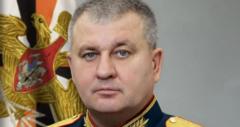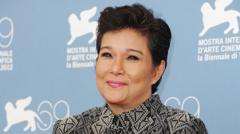In a candid news conference, Vice President Sara Duterte expressed her frustration over her relationship with President Ferdinand Marcos Jr., declaring it toxic amidst accusations of corruption, a split that reveals deep political rifts in the Philippines.
Political Turmoil: Philippines Vice President's Shocking Remarks on President

Political Turmoil: Philippines Vice President's Shocking Remarks on President
Sara Duterte's explosive claims expose the unraveling alliance with President Ferdinand R. Marcos Jr.
In an unprecedented display of political dissent, Philippines Vice President Sara Duterte laid bare her frustrations during a two-hour news conference, openly criticizing President Ferdinand R. Marcos Jr. The airing of grievances follows a series of allegations against her in Congress, which Duterte suspects are part of a political attack orchestrated by her boss.
Duterte's comments ranged from extreme to shocking—revealing a level of discontent that has turned her longtime alliance with Marcos turbulent. She metaphorically expressed a desire to “cut his head off,” highlighting the deteriorating relationship. Furthermore, in a stark invocation of political history, she suggested to Senator Imee Marcos that if the attacks persisted, she would be inclined to "dig up your father’s body and throw it in the West Philippine Sea," referring to Ferdinand Marcos Sr., the former dictator of the Philippines.
Marcos has remained largely silent regarding their fallout, a far cry from the promises of national unity made by both when they assumed office in 2022. Once seen as a formidable political partnership, their alliance now seems more like a marriage of convenience that is rapidly falling apart.
The discord between Duterte and Marcos roots deeply into their differing perspectives on foreign policy, particularly with regards to the U.S. and China. While Marcos views the United States as a critical ally against Chinese expansionism, Duterte, influenced by her father Rodrigo Duterte's administration, has adopted a more conciliatory stance toward Beijing, distancing herself from the rhetoric of her counterpart.
This profound split raises questions about the political landscape in the Philippines, as two powerful dynasties clash, dismantling the unity they once promised. As tensions rise, the political implications for both figures, and the citizens they represent, remain uncertain.




















